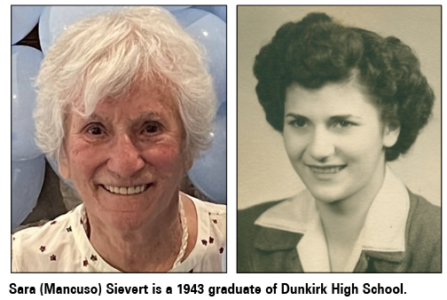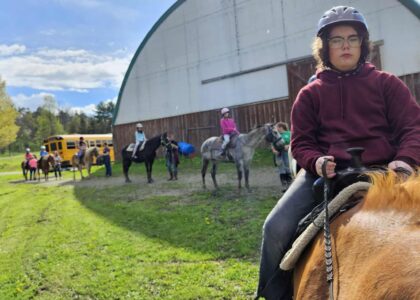County fairs still filled with history, characters
In a recent OBSERVER/Post-Journal special section, Dave Wilson shares a brief yet comprehensive history of the Chautauqua County Fair. He makes it clear that the Fair, notwithstanding its periodic shut-downs and various reformations, has always been at its core an investment in the prospect of agricultural growth. In a way, it encompasses the rural roots of the area in which we live – the vocations, the traditions, the ethnicities, and the day-to-day undertakings of generations of families across the county.
It’s hard to characterize the Fair today in terms of main attractions and popular appeal. In some ways it is the same as it always was. The sounds, the smells, and the lights can make you feel like you hitched a ride in Mr. Peabody’s way-back machine. Yet it has changed with the times, and many of the most vividly memorable attractions (those mysteries hidden within canvas tents) have been cleansed away.
The following is an excerpt from a short story I published a couple years ago. It is set during the summer county fair season in a fictional place not unlike our Chautauqua County (though somewhat less cultured). The passages here set the stage for an event that many of us personally experienced back in the 1970s when on Friday night the Grandstand featured the Battle of the Bands, a showcase for popular local rock groups.
I arrived on Tuesday evening of the second week of the County Fair in Jefferson Grove, population 42,592– the largest city in the county. This was the highlight of the year for so many people from all parts of the county. It was the time for those from outlying agricultural regions to display the fruits of their hard work in the excellent new barns the city had built. This meant trucking into town all kinds of livestock — cows, hogs, goats, sheep, and all kinds of fancy-feathered fowl — along with the supplies needed to maintain the animals and the farmers themselves for up to two weeks as they vied for blue ribbons, bartered with competitors, and swapped genetic information. For the young folks there was the opportunity to meet new people from outside their small farm communities. And if they were lucky and adventurous, there were secret places to meet after the giant machines rested and the colored lights surrendered the night to the moon and the stars.
As host to the annual event, the city of Jefferson Grove anticipated a considerable profit. The hotels and restaurants saw this as the occasion to make up for slow spring and winter seasons, and vendors of the traditional fare — candy apples, waffles, sausage, pizza, cotton candy, and beer — would always do well. Residents near the fairgrounds took in wads of money from the people who wanted close parking spots, and there was plenty of overtime work available for the police and emergency crews.
For both the city and the farm people there would be opportunities to display their particular talents by competing in various events, including demolition derbies, dirt-bike jumping contests, art displays, and cheerleading competitions. Carnies in the gaming tents would shout their bold and often rude challenges to the fairgoers to try their luck at dart throwing, duck plucking, water pistol / basketball shooting, and baseball throwing. As for the carnival workers – those transients who traveled town to town with the fair – the residents of Jefferson County held various opinions. There were the snobbish sorts, the ones who regarded carnies as a tribe of incestuous vagabonds, unclean misfits, and ne’er-do-wells. Some residents were afraid of them, and would double lock their doors during the fair weeks. But there was another group, characterized by the more adventurous and young-at-heart, who saw the “carnies” as free spirits, not bound to anyone or any place. They were the modern-day, flesh-and-blood representatives of the Gypsies and Bohemians of films and novels. And they were the assemblers of the colorful tents and the phantasmagoric machinery that lit the nights for two straight weeks every year.
Pete Howard, a musician, writer, teacher, and painter, lives in Dunkirk.




